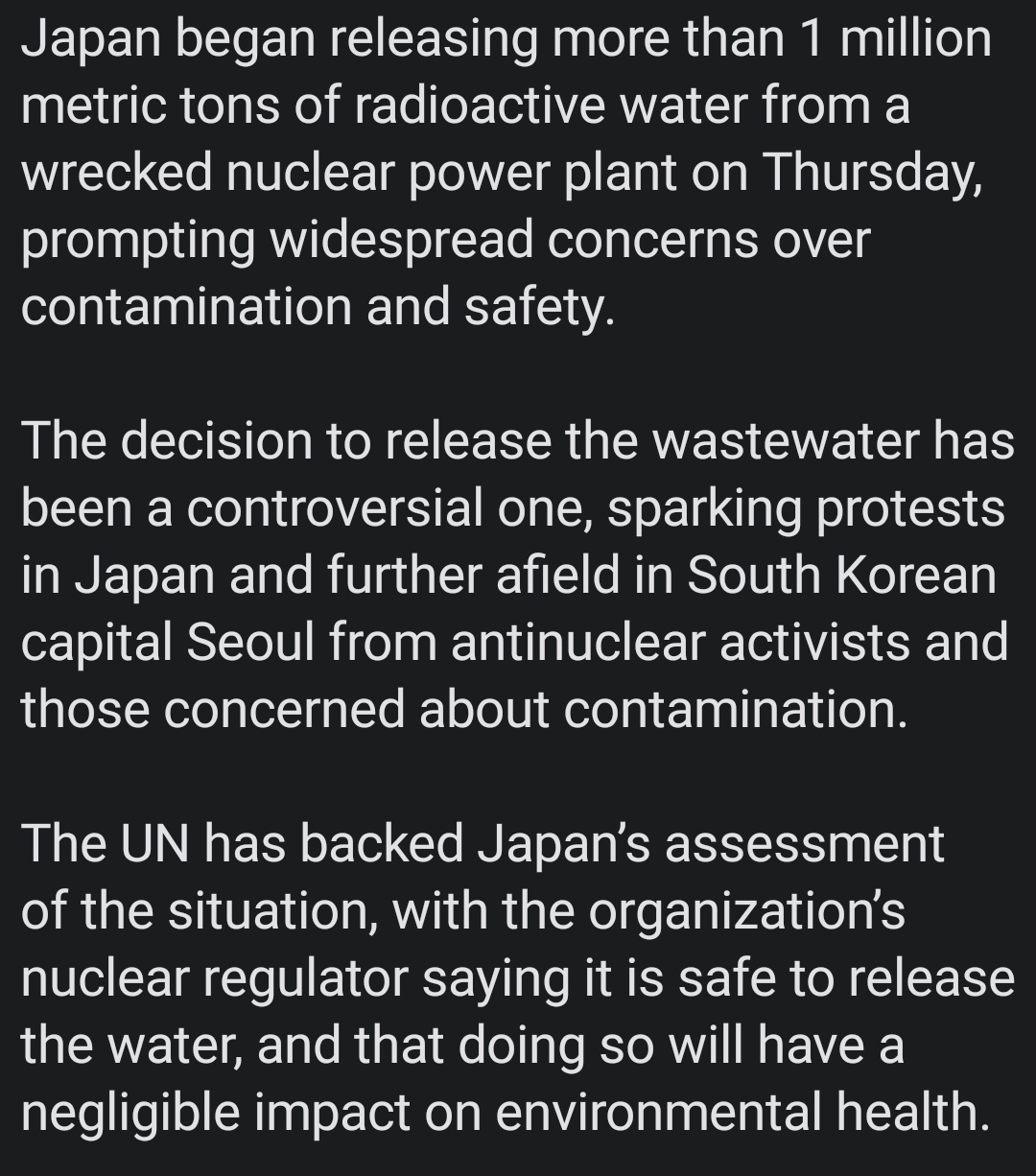this post was submitted on 25 Aug 2023
39 points (100.0% liked)
chapotraphouse
13843 readers
662 users here now
Banned? DM Wmill to appeal.
No anti-nautilism posts. See: Eco-fascism Primer
Slop posts go in c/slop. Don't post low-hanging fruit here.
founded 4 years ago
MODERATORS
you are viewing a single comment's thread
view the rest of the comments
view the rest of the comments

This is one of those things where it might actually be negligible, but both the nuclear energy and oil capitalists have such huge amounts of money behind the sides of the argument that the only way of knowing would be to actually look at the science yourself, and no one is going to do that
The science is crystal clear on tritium being absorbed like calcium into bones leading to cancer. It's a slow death tho so who cares right? Nobody wants to live forever.
It's a purely economic decision. Everyone even my friends in Japan oppose it. But we don't live in a democracy and the rich sure as fuck aren't going to eat irradiated fish I can guarantee you that.
But, lets consider the alternative for a minute it would be more dangerous to have the residues idling in metal containers, that creates the risk of non controlled spills due to natural disasters, mismanagement, human error, and, of course, wear and tear.
So, we are currently in across road with two solutions. Taking into mind that tritium has a half-life of 12 years, meaning that in 12 years half of its mass would have become helium and beta radiation, the kind of radiation you can stop with a thin alluminium layer. Taking this into account, to spill or not to spill becomes a matter of "until when is safe to store the water" and "when has the tritium decomposed to acceptable levels". We must, too, bear in mind that the tritium will decompose, either on the water tanks or on the sea.
Now we are not talking about "if", but about "when".
To me that sounds like it would be entirely feasible to wait out at least some of that tritium decay before washing your hands of it. But 12/24/... years of storage and management costs money of course, so the capitalist answer will always be "at your earliest convenience" regarding that when
So if the tritium is the main concern here and it’s been almost 12 years… half of it should have already decayed… were the levels so high that the remaining amount is a large concern? Also, wasn’t the water treated in some way to try and remove some of the radiated water?
What does tritium decay in to?
Read the post I replied to.
tritium is hydrogen with two extra neutrons. so it emits an electron, converting one of the neutrons into a proton via B- decay, becoming helium-3. helium-3 being helium, it escapes into the atmosphere and eventually leaves the planet as it's too light for gravity.